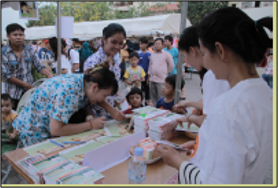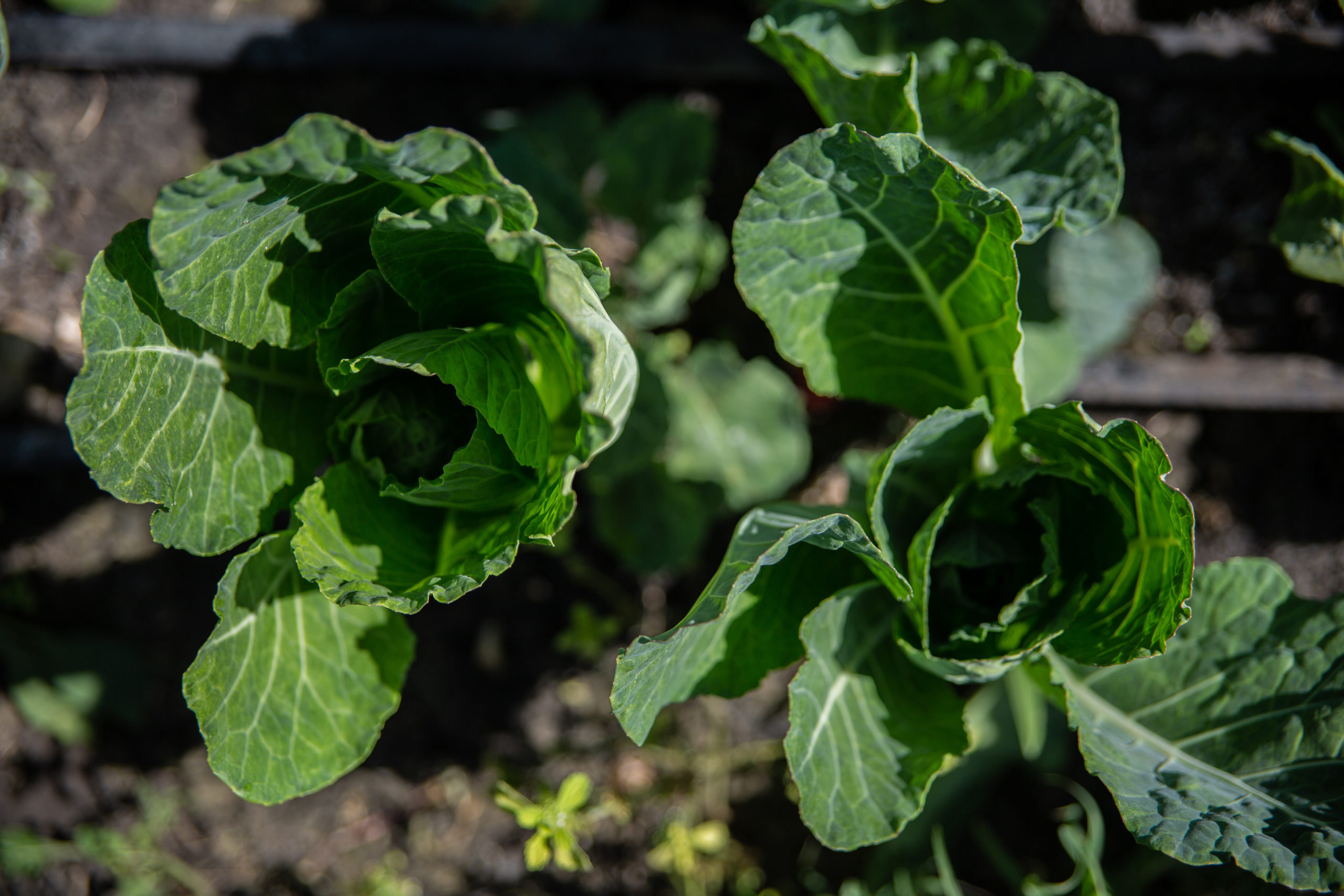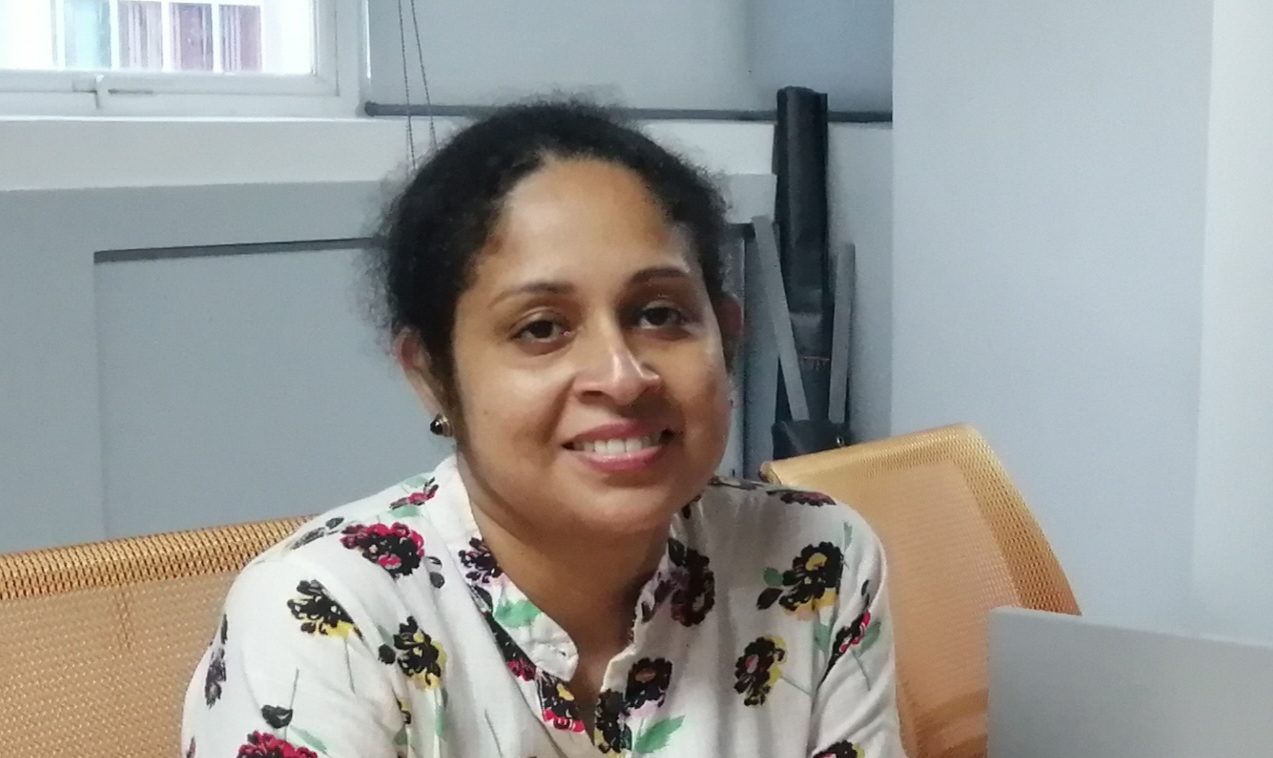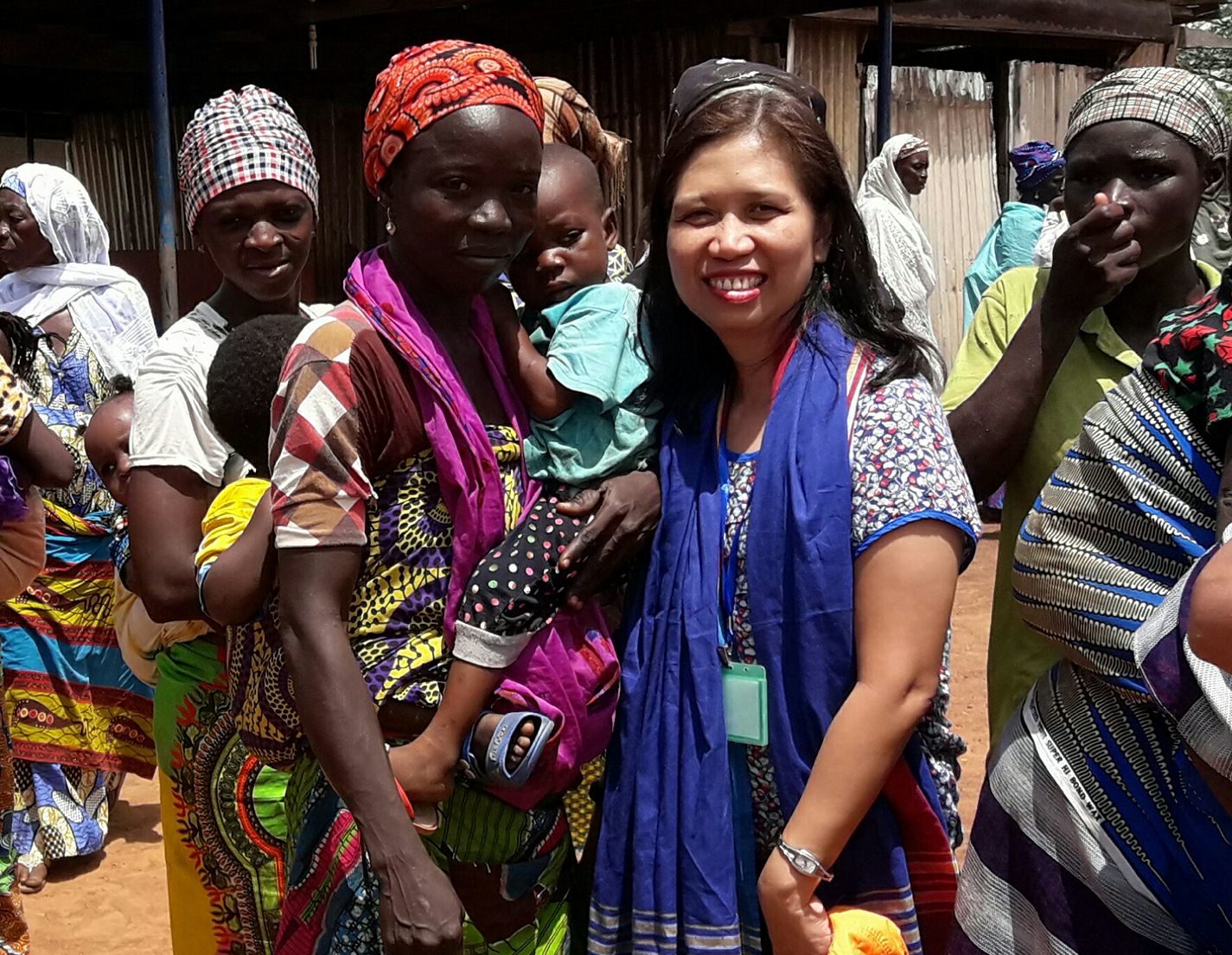In 2019, the Ministry of Health in Kyrgyzstan created a working group to revise the Law « On the Protection of Breastfeeding », the working group included representatives of CSA SUN Kyrgyzstan, who contributed to the development of proposals for the draft of the Law. In the same year, UNICEF arranged a visit from David Clark, a […]
LireToutes les infos de la région Asia
World Breastfeeding Week: SUN CSA Cambodia investigators violators of the code
In Cambodia, the code for producers of breast milk substitutes was put in place in 2005. However, for the next decade there was little to no enforcement and when surveyed, only 27% of officials actually knew the details of the code. Despite widespread violations, there was no reporting and no enforcement recognition in place. To combat these […]
Lire5 things we learnt from the 2020 Civil Society Annual Survey
Our membership is huge! With civil society presence in nearly 50 countries, we always knew we were a large network. But after gathering the data from this year’s Annual Survey we have discovered that we have an incredible 4212 member organisations in the Scaling Up Nutrition Civil Society Network (SUN CSN)!1 This number has increased […]
LireThe SUN Civil Society Network launches its new 5-year strategy!
Why do we need a new CSN strategy? The Civil Society Network 3.0 strategy (2021-2025) constitutes an essential guide to rally all civil society members’ collective efforts behind a strong mission and vision. The CSN 3.0 strategy was designed for the Network by the Network, in alignment with the overall SUN Movement 3.0 strategy. As such, the […]
LireSUN PfSl: International Women’s Day Program – 2021
International Women’s Day is celebrated on 8th of March every year. As an organization that works for the improvement of the nutritional status of the community, SUN PF also joins with various programs for Women’s Day every year. This is primarily because proper nutrition of women contributes to the nutritional wellbeing of the entire population […]
LireMeet the women of the CSN: Dilka Rashmi Peiris
Project Director Scaling Up Nutrition People’s Forum, former SUN CSA focal person for Sri Lanka My work in nutrition I was really drawn to nutrition as it has a multi-sectoral approach. Women play a key role in implementing nutrition policies, both in the family and in society as a whole, and contributing to the health and […]
LireMeet the women of the CSN: Duong Vu
Duong Vu, Vietnam Program Manager for Alive and Thrive (A&T) My work in nutrition I am Duong Vu. I work at Alive & Thrive Southeast Asia. As a core member of SUN CSN Vietnam, I supported the strategy development and policy advocacy. There are two recent policy wins that we all are very proud of. […]
LireMeet the women of the CSN: Emilita Monville Oro
Acting Asia Regional Director and concurrent Country Director for Philippines International Institute of Rural Reconstruction (IIRR) My work in nutrition I got engaged with the SUN Movement through involvement of the International Institute of Rural Reconstruction (IIRR), as one of the founding members of PHILCAN, Philippine Coalition of Advocates for Nutrition Security, Inc. Subsequently, PHILCAN […]
LirePrioritising Youth Voices During the Year of Action for Nutrition for Growth
2021: A year overflowing with opportunities It’s 2021, and although very little may have changed so far in comparison to 2020 (come on, vaccines!), there has already been a huge shift: it is now officially the Year of Action for Nutrition. Last year, the COVID-19 pandemic resulted in devastating losses to the decades of progress on […]
LireFAMILY MUAC PROJECT 2020 – SUN POOLED FUND Afghanistan
By Alison Farnham MA, MMedSci, Nutritionist and SUN Pooled Fund Project Consultant, Action for Development Background Afghanistan is one of the poorest countries in the world. Since the Soviet invasion in 1979, the country has suffered through more than four decades of conflicts that have taken an incalculable toll on the country’s economic infrastructure and […]
LireBy Alison Farnham MA, MMedSci, Nutritionist and SUN Pooled Fund Project Consultant, Action for Development
Background
Afghanistan is one of the poorest countries in the world. Since the Soviet invasion in 1979, the country has suffered through more than four decades of conflicts that have taken an incalculable toll on the country’s economic infrastructure and resulted in widespread poverty. According to figures by the Ministry of Economy of Afghanistan and a recent UNDP report on implications of COVID-19 on the economy of Afghanistan, 55% of the country’s population currently lives below the national poverty line and another 20% is highly vulnerable to the risk of falling into poverty.
Although Afghanistan has achieved considerable progress in tackling malnutrition, it remains a national challenge and according to the Global Nutrition Report 2020, the country is off course to meet the Global Targets. Afghanistan has one of the world’s highest rates of stunting in children under-5 years old; 40.9% are stunted and 9.5% are wasted. In Afghanistan today, 14.7 million people are estimated to be living in acute food insecurity[i], with an estimated 2 million children under the age of 5 affected by acute malnutrition[ii].
The Family MUAC Approach
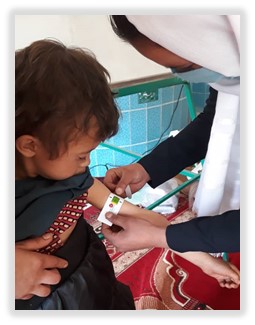
The Family MUAC approach provides a rapid screening for malnutrition, is a practical and scalable means to detect acute malnutrition at community level and is now widely recognised as an approach with huge potential to improve malnutrition outcomes.
The Family MUAC approach was designed in 2012 to empower caregivers to identify undernutrition in their children, allowing them to seek early treatment. This is important as many children with acute malnutrition arrive at medical facilities in a critical condition due to late diagnosis. Normally, community health workers (CHWs) periodically or opportunistically measure children for acute malnutrition in the communities where they work. However, mothers or other primary carers can easily learn to screen their children using the relatively simple Mid-Upper Arm Circumference (MUAC) tapes and testing for oedema. Neither literacy or numeracy skills are required and with basic training, caregivers can take measurements on a regular basis, identify early signs of undernutrition and seek treatment before serious malnutrition occurs.
Benefits of Family MUAC:
- Empowers caregivers
- Increased coverage due to the decentralisation of the service down to the caregiver level
- Allows CHWs more time to attend to other tasks
- Malnutrition identified earlier, leading to:
- More children being treated in less time
- Improved program compliance as families with children who are not as critically ill have lower defaulter rates
- Reduced cost and burden to services
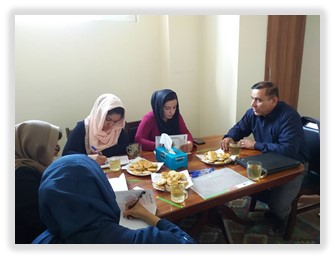
Family MUAC and COVID-19
The Family MUAC approach is of particular interest during the COVID-19 pandemic. This approach is one of UNICEF and the Global Technical Assistance Mechanism’s (GTAM) priority actions to support preparation and response to acute malnutrition in the context of COVID-19[iii]. Additionally, Family MUAC is a recommended measure to ensure continuity and safety of routine services for the early detection and treatment of child wasting in the context of COVID-19 in the WHO/UNICEF Implementation Guidance for Wasting in Children in COVID-19 .
The COVID-19 pandemic is particularly impacting Afghan women and children’s health, putting many at severe risk of malnutrition. At the same time as malnutrition is likely rising, health partners are continuing to see lower numbers of patients at fixed health and nutrition facilities due to people’s fear of catching the virus.
Action for Development’s Family MUAC Project
Under the no-cost extension of the SUN Pooled Fund Project Afghanistan, Action for Development (AfD), developed a project to train CHWs in Family MUAC in 5 provinces in Afghanistan – Panjsher, Kabul, Dykundi, Bamyan, Jawzjan – selecting several districts in each province where training in Family MUAC will be provided to caregivers and female CHWs. Community health workers in Afghanistan work as a male-female couple and are based in a health post, serving a population of 1000-1500 per pair. They carry critical health knowledge, skills and tools into communities and homes and are the first point of contact with the health system for many Afghans.
As well as the Family MUAC training, AfD will be providing training using counselling card materials for CHWs. These counselling cards have been adapted by UNICEF Afghanistan for the local context, to ensure that CHWs are up to date with recommended practices for infant and young child feeding adapted to the COVID-19 context.
After development, the project was presented to nutrition partners in Afghanistan at the monthly Nutrition Cluster meeting in August. Preparation for project implementation began the following month at AfD’s country office in Kabul, where four female health workers received ‘Training of Trainers’ training in Family MUAC from Dr Dashti of the Ministry of Health’s Public Nutrition Department (PND) [Photo].
These 4 trainers will travel to the provinces alongside Master Trainer Dr Zabihullah Rahimi, where between October and December 2020, they will train 500 CHWs and approximately 200 caregivers in the Family MUAC method.
The expected outcome of the training is to support uptake of routine services for the early detection and treatment of child wasting in the context of COVID-19.
Training begins
In mid-October the team of trainers travelled from Kabul to Bamyan province where they embarked on the first training sessions. Training was provided to 120 CHWs and 40 caregivers over 8 health facilities in 3 districts. Heads of clinics and Community Health Supervisers (CHS) also joined the training sessions. MUAC tapes were distributed and each trained CHW received a copy of the IYCF counselling cards.
Next the team travelled to Dykundi province where they noted that the long distances to be covered between health facilities was a challenge. Notwithstanding the distances, the team was able to provide training to 120 CHWs and 45 caregivers in 3 districts. Ten volunteers from a health in the community group also joined the training. The CHWs and CHS noted the need for Family MUAC training in other districts of Dykundi in order to combat high levels of malnutrition. Caregivers gave very positive feedback regarding the MUAC tapes, stating that they must travel long distances to access health facilities so they welcomed the ability to take measurements of their children at home.
Support for the Family MUAC Project
Action for Development would like to acknowledge the support of UNICEF Afghanistan for this project through the sharing of training materials and IYCF counselling cards adapted to the Afghanistan country context and translated in to local languages.
AfD would also like to thank the Public Nutrition Department for their support and particularly Dr Dashti for providing the training of the trainers. Also the BPHS (Basic Package of Health Services) providers in the provinces (Aga Khan Foundation and MOVE) for their support in selecting the districts and facilitating the training in those districts.
Additionally, the technical support of the Global Nutrition Cluster (GNC) Technical Alliance (formerly the GTAM) was requested in order to ensure a strong monitoring, evaluation and learning (MEL) component. The GNC Technical Alliance is set up to identify technical gaps and leverage the technical expertise of the nutrition community to fill those gaps. In this case Action Against Hunger UK, technical experts and leaders in CMAM MEAL, are providing the technical support. The MEL will identify best practices and lessons learned in order to inform the development of future Family MUAC projects and advocate for the approach across Afghanistan, and globally.
Next Steps
The next Family MUAC training sessions will take place in Jawzjan, Panjsher and finally Kabul provinces. Updates, photos and the final report can be found on Action for Development’s website. For further information, please contact [email protected]
#nutritioncantwait #SUNPooledFund
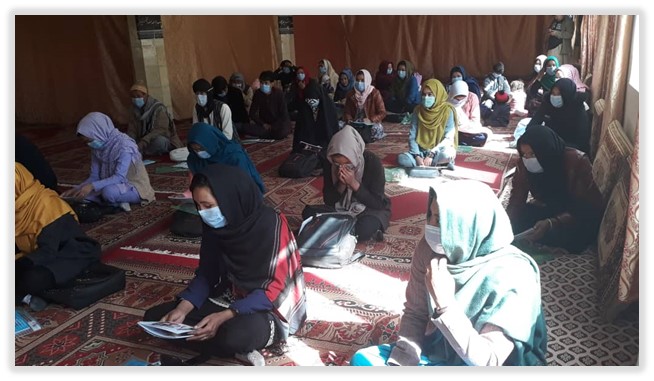
[i] https://www.humanitarianresponse.info/en/operations/afghanistan/document/afghanistan-covid-19-multi-sectoral-response-operational-20
[ii] OCHA – Afghanistan Humanitarian Response Plan, 2020
[iii] see the March 27th guidance brief for the Management of Child Wasting in the context of COVID-19, (https://acutemalnutrition.org/en/resource-library/3BvzX2BOpSJTYBSoPcb2C0).


